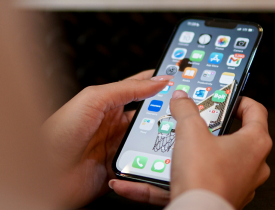SDU IT
AI at SDU
There are many questions when it comes to the use of AI at SDU. Familiarise yourself with the current guidelines. Learn how to use AI in a responsible and ethical way. Get tips and tricks for using AI effectively in your work — e.g. to improve texts, plan meetings, and create structure and overview.
Good advice
News about AI
Do you have any questions?
You are always welcome to contact us if you have questions or need sparring about the use of AI.

